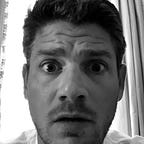The Red Badge of Courage and the Modern Rite of Passage
Modern American men suffer from an identity crisis. There is no longer a single, definitive moment where we have come of age, the rite of passage, where we have proven our worth as an adult male, and we can call ourselves a man. We go through puberty and physically become men, we play sports to test ourselves, we graduate high school and leave behind adolescence and the care of our parents to make our way at college or out in the real world. Military service and war used to be the measure of a man — grounds where his courage is tested and he must reconcile the awareness of his mortality — but fewer men experience this in modern American society and are left wanting.
I recently read The Red Badge of Courage, which deals precisely with the struggles a young man goes through as he attempts to answer the question of “do I have what it takes”? When we first meet Henry Fleming, he is simultaneously fantasizing of his becoming a war hero and terrified by the prospect of running from battle, exposing himself as a coward, without being able to control it. He knows the test is imminent. At first Henry loses himself to the rhythm of battle and fighting alongside his comrades and thinks he’s made it through. In the next battle, a few fellow soldiers start running from the front lines and without thinking, Henry joins them. His worst fears are confirmed. He’s a coward, a deserter. Eventually, after some more damning incidents and sinking to the lowest point of his shame, Henry is restored to his regiment with no one the wiser to his cowardice. He has a chance to redeem himself. Henry becomes the hero and the man he was dreaming of becoming, but it isn’t really a conscious decision, he reaches a point of resolution, accepting his death and his responsibility to do everything in his power to complete his job and he does it.
I think a boy’s journey to manhood is not accomplished in a single epiphany moment, but rather two. The first one is where a boy displays to himself the attitude and behaviors that prove to him he has the capacity to act as the men whom he respects act. And though it may be raw and undeveloped, he has it in him to keep developing. The second moment is where he actually accepts responsibilities and becomes an instrument for something bigger than himself — a provider, a defender, an advocate — for his military, his village, his family, his God. Without the test of war and in the comforts of modern life, us men must go out of our way to seek and construct these imperative tests for ourselves.
